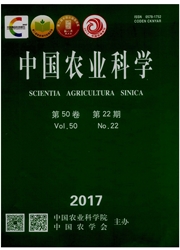

 中文摘要:
中文摘要:
复杂性状是指由多基因和非遗传因素共同作用的一类性状的总称,包括表型呈连续分布的经典数量性状,多基因控制但表型呈间断分布的二歧或多歧性状,以及难以准确度量的动物各种行为性状等。动植物的许多重要经济性状以及人类复杂疾病均属于复杂性状范畴。阐明复杂性状的遗传基础,对于动植物新品种的遗传改良具有十分重要的意义。本文在阐述复杂性状基本概念的基础上,综述了复杂性状的遗传分析策略以及近年来取得的主要研究进展。最后,对后基因组时代复杂性状基础研究面临的挑战提出了一些讨论,以供参考。
 英文摘要:
英文摘要:
Complex traits are features whose properties are determined by both genetic and environmental factors. Generally, complex traits include the classical quantitative traits with continuous distribution, the binary or categorical traits with discrete distribution controlled by polygene and animal behavior that can not be phenotyped accurately. Most economically important traits in plants and animals are categorized into this kind of traits. Understanding the molecular basis of complex traits plays a vital role in the genetic improvement of plant and animal breeding. In this article, The anthor summarized the conception and research background of complex traits, and reviewed the strategies, methods and the great progress that had been made in dissecting genetic basis of complex traits. The challenges and possible developments were also discussed.
 同期刊论文项目
同期刊论文项目
 同项目期刊论文
同项目期刊论文
 期刊信息
期刊信息
